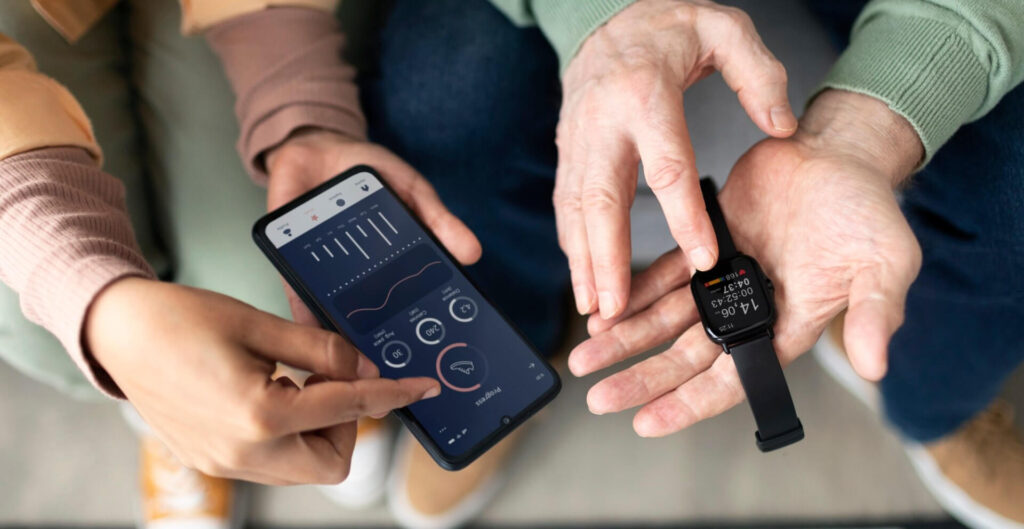
In recent years, smart watches have transcended their original purpose as timekeeping devices and evolved into powerful tools that are revolutionizing healthcare in profound ways. These wearable devices, equipped with advanced sensors and connectivity features, are playing a pivotal role in preventive care, remote monitoring, and improving overall patient outcomes. Here’s a closer look at how smart watches are transforming healthcare:
Remote Health Monitoring
Smart watches enable continuous monitoring of vital signs such as heart rate, blood pressure, and even electrocardiogram (ECG) readings. This real-time data can be crucial for individuals with chronic conditions such as hypertension, diabetes, or cardiovascular diseases. Healthcare providers can remotely monitor patients’ health metrics and intervene promptly if any anomalies are detected, potentially preventing serious health complications.
Early Disease Detection
The ability of smart watches to collect and analyze data over time allows for early detection of health issues. For example, irregularities in heart rate patterns or sudden drops in oxygen saturation levels (SpO2) can be indicators of underlying health conditions. By alerting users and healthcare providers to these changes, smart watches facilitate early intervention and timely medical care, which can significantly improve treatment outcomes and reduce healthcare costs.
Fitness and Wellness Tracking
Beyond medical monitoring, smart watches encourage proactive management of fitness and wellness. They track physical activity, monitor sleep patterns, and provide insights into overall lifestyle habits. By setting goals and receiving personalized feedback, users can make informed decisions to improve their health behaviors, leading to better physical fitness and overall well-being.
Medication Management
Smart watches can also assist with medication adherence through reminders and alerts. Patients can receive notifications when it’s time to take medications, ensuring they adhere to prescribed treatment plans. This feature is particularly beneficial for elderly patients or those managing complex medication regimens.
Emergency Assistance and Safety
Many smart watches are equipped with features like fall detection and emergency SOS alerts. In the event of a fall or sudden health crisis, these devices can automatically notify emergency contacts or emergency services, providing peace of mind to users and their loved ones.
Telehealth Integration
The integration of smart watches with telehealth platforms enhances virtual healthcare delivery. Healthcare providers can conduct remote consultations, review patient data in real time, and adjust treatment plans accordingly. This capability is particularly valuable for patients in rural or underserved areas who may have limited access to healthcare facilities.
Research and Population Health Insights
The vast amount of anonymized health data collected from smart watches offers researchers valuable insights into population health trends and disease patterns. Analyzing aggregated data can lead to advancements in medical research, epidemiology, and public health strategies.
Challenges and Considerations
While smart watches offer tremendous potential in healthcare, there are challenges to address, including data privacy concerns, regulatory compliance, and the need for validation of accuracy and reliability in medical applications. Healthcare providers must also ensure that smart watch data integrates seamlessly into electronic health records (EHRs) and clinical workflows.
Future Outlook
Looking ahead, the future of smart watches in healthcare looks promising. Continued advancements in sensor technology, artificial intelligence, and machine learning will further enhance the capabilities of these devices. As they become more integrated into healthcare ecosystems, smart watches have the potential to empower individuals, improve patient outcomes, and transform the delivery of healthcare worldwide.
In conclusion, smart watches are not just gadgets but pivotal tools reshaping the healthcare landscape. By harnessing the power of wearable technology, healthcare is becoming more personalized, proactive, and accessible than ever before, ushering in a new era of connected health management.


